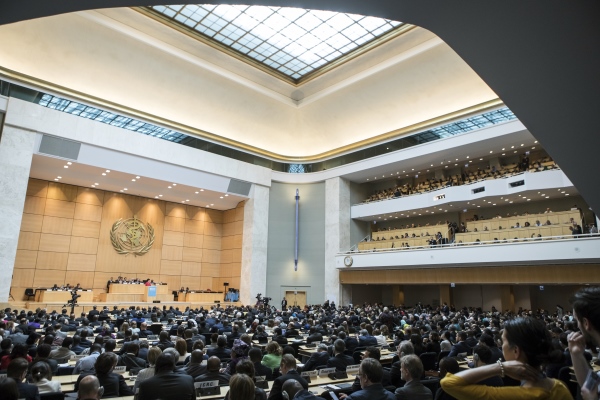
The World Health Organization has inched closer to cementing its position on illicit and poor-quality medicines after new definitions and nomenclature were formally agreed at the World Health Assembly.
Originally known as "substandard/spurious/falsely-labelled/falsified/counterfeit (SSFFC)" medical products, the WHA formally agreed to replace the tongue twister with the new name "substandard and falsified" (SF) medical products during the WHA's 70th session.
The name change follows controversy over the cumbersome SSFFC phrase, specifically the use of the word counterfeit, which is a term associated with intellectual property rights and it has been argued that its use could lead to a conflation with legitimate generic drugs. As such the WHO's technical working group recommended, in November last year, the two words 'falsified' and 'substandard' to replace and cover the gamut of cases under the SSFFC umbrella.
The agreement on the new lexicon represents a key achievement in the progress of a member state mechanism to promote public health and prevent illicit medicines.
As part of the 70th session, the WHA also agreed on fine-tuned definitions of types of illicit medicines.
"Substandard" medical products (also called "out of specification") are seen to be medicines that are authorised by national regulatory authorities but which fail to meet national or international quality standards and/or specifications.
"Falsified" medical products are those that deliberately or fraudulently misrepresent their identity, composition or source.
And "unregistered or unlicensed medical products" are those that have not been assessed or approved by the relevant regulatory authority for the market in which they are marketed, distributed or used.
The new terminology aims to establish a common understanding of what is meant by substandard and falsified medical products and to facilitate a more thorough and accurate comparison and analysis of data.
The confirmed definitions solely focus on the public health implications of substandard and falsified products and does not cover the protection of intellectual property rights, the WHO said.
"Substandard and falsified medical products can harm patients and fail to treat diseases for which they were intended," the WHO said in a statement. "They lead to loss of confidence in medicines, healthcare providers and health systems, and affect every region of the world. Anti-malarials and antibiotics are among the most commonly reported substandard and falsified medical products, but all types of medicines can be substandard and falsified. They can be found in illegal street markets, via unregulated websites, and in pharmacies, clinics and hospitals."
The update is a sign of progress, albeit slow, in the formulation of a member state mechanism to prevent and control illicit medicines and protect public health by promoting access to affordable, safe, efficacious, and quality medical products. The resolution for the mechanism was first adopted in 2012 at the 65th WHA session.
According to a briefing paper for the 70th session, a review of the mechanism's progress, which had been delayed a year, "found that the mechanism continues to be relevant, it plays a critical role in raising awareness of SSFFC medical products and member states would want it to continue".
The 104 member states that took part in the review also showed "substantial consensus" that the mechanism had made "reasonable progress" in achieving its objectives "given the initial challenges and time required to create the enabling environment for the effective functioning of the mechanism".
"Member states considered that the mechanism is an adequate global platform to promote the prevention, detection and response to SSFFC medical products and associated activities," the briefing paper said.
The main gaps identified in the review were: an unfinished technical agenda; limited coordination processes among the different actors involved in the work of the mechanism; and the inadequate systems of communication and dissemination of information between the mechanism and member states, as illustrated by the limited reach of the products and activities of the mechanism. The review also noted that the mechanism was under-resourced.
Five recommendations were made as a result of the review including: a revisit of the current workplan; develop processes for improved communication, information sharing and coordination; expand capacity; secure additional resources; and encourage the engagement of additional parties such as academia, manufacturers and nongovernmental organisations.
In a statement at the 70th session, the International Federation of Pharmaceutical Manufacturers and Associations said it "commends" the fifth recommendation, adding: "The lack of a globally approved definition is a key hindrance to strong coordinated action. IFPMA therefore welcomes the consensus found by the WHO mechanism members in accepting the use of the term "falsified" for the purposes of work within the member state mechanism. Reaching this consensus is an important step forward. This agreement is in line with IFPMA's position: as stated in our Ten Principles, patents have nothing to do with falsified medicines. Efforts to tackle falsified versions of genuine approved medicines must not be confused with patent infringement disputes."
The International Pharmaceutical Students' Federation said in a statement: "We encourage increasing awareness to patients and stakeholders and elevating the seriousness of participating in this criminal activity. We share the belief that coordination among all actors is vital to tackle this public health risk and we invite other organisations to join in efforts to empower people."
©
SecuringIndustry.com





